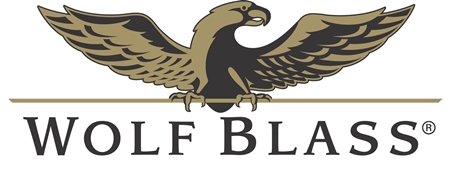There’s a picture of an Eagle Hawk on every bottle of Wolf Blass wine. The bird is more correctly known as a Wedge-Tailed Eagle and is the largest bird of prey in Australia. Actually, it’s one of the largest birds of prey in the world.
When in the 1960s, Wolfgang Blass arrived in Australia from his native Germany and set up his own winery, he named it Bilyara, the aboriginal word for an Eagle Hawk.

To this day, the image of the Eagle Hawk is synonymous with Wolf Blass wines. Over the years the company has grown from a humble shed to one of the most successful wineries in South Australia and has won over 3,000 awards for its range of exceptional wines.
Wolf Blass Yellow Label Riesling 2011 (white), Australia (Bt. 779 @ Villa)
Some wine experts consider Riesling (REEZ-ling) to be one of the finest white grapes ever. Note the pronunciation, by the way. If I catch you calling it RIZE-ling, you’ll be poked with a pointed stick. Some writers claim that Riesling produces the most spectacular white wines in the world. These super-star Rieslings come from either the Alsace region of France, or the Mosel and Rhine areas of Germany. Wine-writer James Cluer says that “Very few other grapes show the complexity that you can find in Riesling, and the depth and layers can be astonishing as they unfold.” Contrary to popular belief, Riesling wines today – with a few expensive exceptions – are completely dry.
The Wolf Blass Yellow Label range includes some of the company’s premium wines. This is a bright, light gold with hints of green. There’s a delicate and sweetish floral aroma of ripe peaches, oranges and a note of herbs. Stainless steel open-fermenters (rather than oak barrels) were used to preserve the freshness of the wine. The taste is as dry as the proverbial bone, with a very smooth mouth-feel. There’s also a fair amount of acidity too, giving the wine a kind of refreshing quality that wine experts like to describe as “racy”.
With a long, citrusy dry finish, this would be terrific with fish and seafood and would partner the tangy flavors of ginger and lime in Asian dishes. It could match spicy Thai or Indian food too. If your previous encounters with Riesling were with the sweetish mass-produced German Rieslings of the 1960s and 70s, prepare yourself for a surprise. However, if you are reluctant to fork out Bt. 799, try the crisp, refreshing Eaglehawk Riesling at Bt. 549 instead.
Wolf Blass Yellow Label Chardonnay 2010 (white), Australia (Bt. 779 @ Villa)
This is a light gold colour with a greenish tinge and there’s a lovely buttery peach, melon and honey aroma that fairly zaps out of the glass. On the palate, the peach and melon dominate and the wine has a silky-smooth mouth-feel with an attractive balance of acid. All too often, the acid is toned down in Chardonnays, with the result that they can sometimes taste dull and flabby but the touch of acid in this wine really perks it up. There’s a very long peach and citrus finish too. So if you prefer your Chardonnays with a bit of character, give this one a try.
Wolf Blass Eaglehawk Merlot 2011 (red), Australia (Bt. 540 @ Friendship)
Merlot has become popular because it offers a softness of texture with while ripe, plum-like flavours. However, I have tasted this wine a couple of times during the last few weeks and it has much more interest than some of the bland Californian Merlots that I’ve come across.
It always seems to me that Wolf Blass wines have something interesting to say and this one, even at the entry-level Eaglehawk range is no exception. The vibrant dark wine has a lovely aroma of cherries with flavours of plum and even a hint of spice on the palate. There’s a touch of vanilla that probably comes from the oak barrels in which the wine was matured. It’s a pleasant very dry easy-drinker, and would be ideal with turkey, duck, pizza or pasta.
Incidentally, Eagle Hawks can evidently soar for hours on end at six thousand feet and sometimes considerably higher. But why they go to the trouble of flying at such amazingly high altitudes, no one really seems to know.




